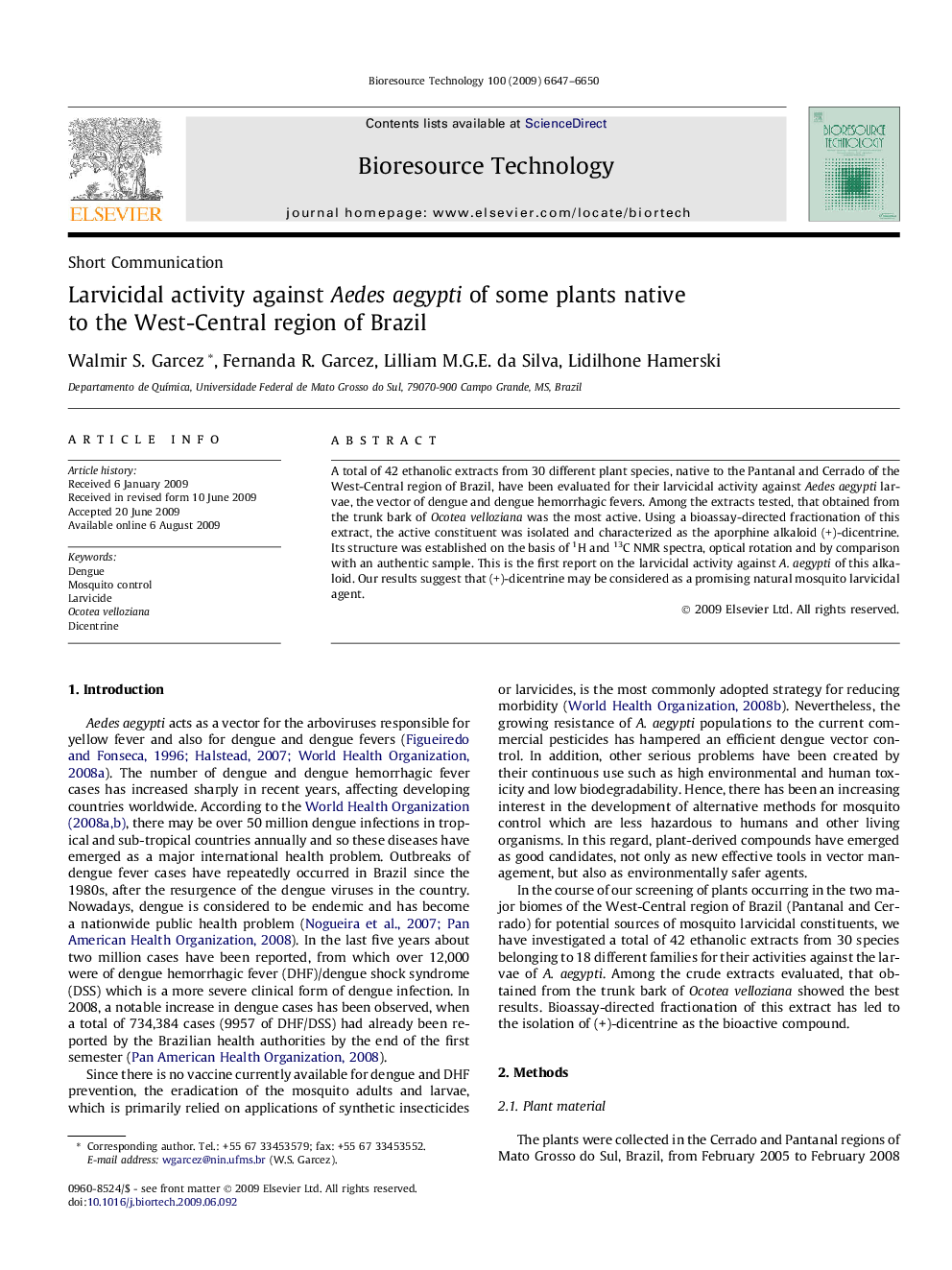| Article ID | Journal | Published Year | Pages | File Type |
|---|---|---|---|---|
| 683478 | Bioresource Technology | 2009 | 4 Pages |
A total of 42 ethanolic extracts from 30 different plant species, native to the Pantanal and Cerrado of the West-Central region of Brazil, have been evaluated for their larvicidal activity against Aedes aegypti larvae, the vector of dengue and dengue hemorrhagic fevers. Among the extracts tested, that obtained from the trunk bark of Ocotea velloziana was the most active. Using a bioassay-directed fractionation of this extract, the active constituent was isolated and characterized as the aporphine alkaloid (+)-dicentrine. Its structure was established on the basis of 1H and 13C NMR spectra, optical rotation and by comparison with an authentic sample. This is the first report on the larvicidal activity against A. aegypti of this alkaloid. Our results suggest that (+)-dicentrine may be considered as a promising natural mosquito larvicidal agent.
